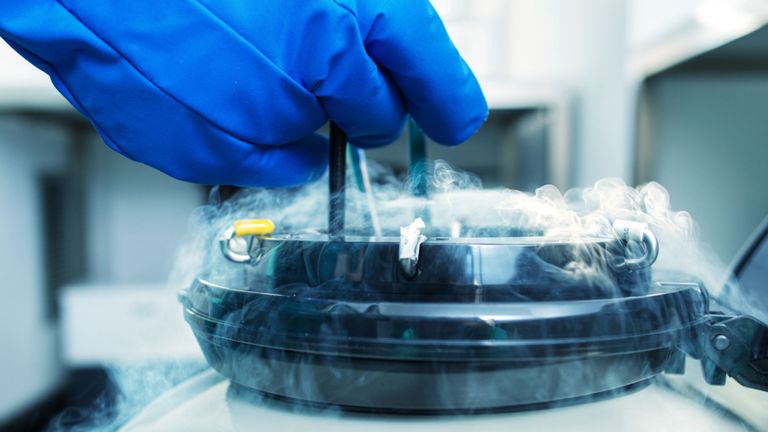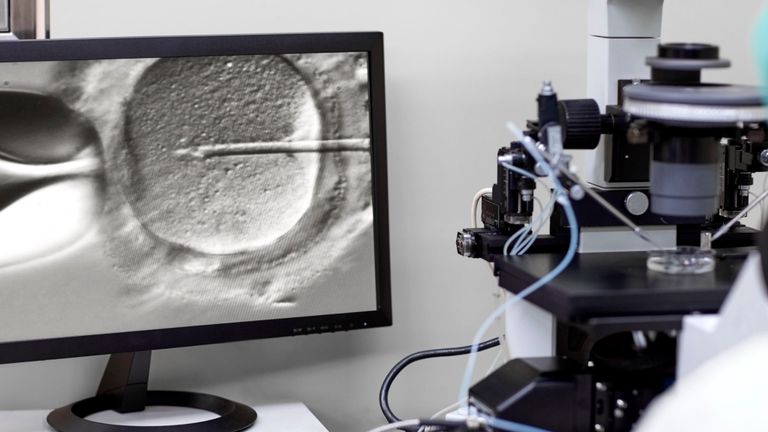The birth of a baby to a woman who was left infertile by chemotherapy has been hailed a fertility breakthrough for women with cancer.
Named Jules, the French infant is reportedly the first in the world born after immature eggs were frozen and grown outside of the mother and then thawed, fertilised and implanted years later.
Fertility doctors at Antoine Beclere University Hospital, near Paris, said the case offers hope to women who would like to have children after a cancer diagnosis and for whom ovarian stimulation is hazardous.

Image:Immature eggs were frozen and grown outside of the mother and then thawed, fertilised and implanted years later
Seven immature eggs had been taken from the mother, a French woman who was 29 at the time, before her chemotherapy for breast cancer had begun.
Then, using a technique called in vitro maturation (IVM), the immature eggs were developed further in the laboratory.
Following this, the eggs were frozen by vitrification, which freezes the eggs very rapidly in liquid nitrogen to reduce the chances of ice crystals forming and damaging the cell.
When the patient had recovered from her cancer five years later, she discovered the treatment had left her infertile.
After deciding to use the frozen eggs, one embryo was transferred to the patient's womb, and she gave birth to a healthy baby boy on 6 July 2019.

Image:The birth has been hailed a fertility breakthrough for women with cancer
Prior to this case, there had been no successful pregnancies in cancer patients with eggs that have undergone IVM and then been frozen.
Some children have, however, been born as a result of IVM when the eggs have been immediately fertilised and transferred to the patient without freezing.
The new method also avoids the potential risk of "re-seeding the cancer", doctors said, which can happen in some cancers when ovarian tissue is later transplanted back into a cancer patient.
Professor Michael Grynberg, head of reproductive medicine and fertility preservation at the hospital, said: "We were delighted that the patient became pregnant without any difficulty and successfully delivered a healthy baby at term.
"My team and I trusted that IVM could work when ovarian stimulation was not feasible.
"This success represents a breakthrough in the field of fertility preservation."
Prof Grynberg added that while the technique was not particularly efficient, it gives women another option.
Details of the case were published in the cancer journal, Annals of Oncology.
 简体中文
简体中文

